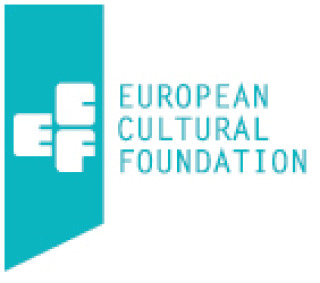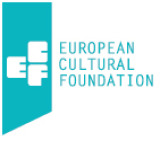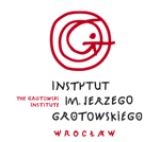»Co-voicings« is a 1-year project, focused on intertwining of the tradition of folk singing and its knowledge with more contemporary artistic practices. Produced by Emanat Institute from Ljubljana (Slovenia) in collaboration with partners Udruženje za kulturu i umjetnost CRVENA (Sarajevo, BiH), Interzone Festival (Novi Sad, SRB) and Grotowski Institute (Wroclaw, PL) in the context of mixing different (local) contexts, we are organizing workshops, round tables, public debates and re-runs of the performance »The Sound of Silence Always Resonates« in Sarajevo, Novi Sad, Wroclaw and Ljubljana through 2013/2014.
Project's most basic idea was born out of curiosity and the need to bring more attention to the role of traditional folk singing in today's society. One could say that traditional folk singing is receiving more recognition in the last decade, some new names in this genre appeared and its audience is becoming wider. On the other hand, folk songs are supposed to be »since forever« and yet gain a new and different form of contemporaneity in every era they appear. Our actuality is no more special that any of the others from the past, when they were discovering the relevance of traditional folk singing for their times, and in this sense the role of the traditional folk songs, the singing itself, the voices, its message, influence and purpose for today - need to be re-contextualized within the framework of issues that concern us, here, today. At the same time we want to experiment with how the traditional folk singing can be performed on a contemporary stage, either in theatre or music halls, how it can relate to contemporary performative practices and what it can tell us about ourselves as well as about the ways we perceive our body, our voice, the singing...
The context
Traditional folk singing opens up many issues and different levels of possible analysis. In a certain way, the "traditional folk song" as we understand it today is not what was considered as such for example in the 1950's - so what is the difference, how did they sing (it) then, what was their view and definition of the past and the tradition, why do we need (to know) that, what does it remind us of, what does it warn us about, and what is it that we never forget and should preserve, what are the things, which disappear in time but shouldn't be forgotten? How are the old voices different from ours today, what was the relevance of singing in the past and what is its relevance today, what were the rituals opened up and constructed by the singing in the past, why is it that today a song is everywhere yet collective singing seems to be rapidly disappearing? How is the silence intertwined with singing, how does pain play into all this, which collective memory helps us to retain certain songs, how does an individual identify with it? Does it need to be updated, merged with "the flow of contemporary times", where does this need to preserve come from, what kind of identity is it offering us? What is the kind of a person that the traditional folk song needs, what kind of a singer and what kind of a listener, how do dialects disappear, how can we engrave our own style upon the tradition and the heritage?These are the questions that concerned us also since we participated in the regular monthly "Meetings of voices", held in Trubarjeva hiša literature (Trubar House of Literature in Ljubljana) in 2011 - a series of meetings and interviews with guests from home and abroad, artists and others whose area of interest and work lies also in traditional folk singing and with whom we explored many views, perspectives and problems that traditional folk singing is opening up - in other words, the many ways in which 'contemporary' folk songs and traditions are performed, preserved or forgotten. And now we would like to apply this spirit to the events and meetings with singers, performers of folk singing and others and upgrade these experiences in a wider cultural context.
Last but not least, ethnic traditions trespass (political) borders even though many times ethnic heritage is used as one of the ‘criteria’, on the basis of which borders are (re-)drawn; paradoxically, since tradition can be understood as people gathering as individuals coming in with their similarities as well as differences in order to find ways to coexist. This thought inspires our project in a musical way also because we perceive this behaviour in all types of polyphonic singing. Next to that, even nowadays there are still songs around, which are hundreds of years old, even older. They were and are the material from which the (political) concept of what is “national” (traditional, ethnic, etc.) also derived from. Contemporary world exists in the framework of contemporary experiences and circumstances, but there are songs and people who remain connected to the tradition(al ways), who can teach us how to look beyond the frameworks and connect with each other and our heritage in a different way and bring into contemporary mind “something old” but which transcends the notions of (linear) time. Because tradition has always been art - the art of living, a very substantial, concrete art. With this project we would like to emphasize and show that tradition does not belong only to the past, but that it is essential we work with it and keep it alive today, so that we learn from it and let it shape our future in a much richer and more ethical way. On the final note, traditional (ethno) artistic practices are very strongly connected with the notion of Ethics - the aesthetics of traditional artistic practices is based on what is ethical, on the values that a community holds dear. Many levels are embraced in the very process of the traditional type of singing - everybody has their own voice, people gather together and are included also by the virtue of their differences that are accepted in harmony. And unfortunately today this sounds completely utopian as a context for political action or a framework of a political point of view - but traditional (“folk”) singing is also a practise of this kind of ethical attitude and as such always transcended geographical, political and social borders because it captured universal hopes, aspirations and desires. Because we are also convinced that it is important to make people aware that each one of them has his/her own voice and that it is not important only on a local, but a much wider level. In more general terms, we‘d like to question the fact that we still connect traditions with nationalism, which is a very narrow-minded viewpoint to approach tradition, heritage, ethnic components of arts and culture and so on, and with this kind of project we can - through means of art and finding a place for tradition in contemporary society – set new limits and question existing borders.
Links
Irena Tomažin: The Taste Of Silence Always ResonatesVoice workshop (voice as body, text and music)
Co-voicings - talks
Support
produced by: Emanatco-produced by: Cankarjev dom, Maska
supported by: European Cultural Foundation, Ministry for Culture of Republic of Slovenia, Municipality of Ljubljana
partners: Crvena (Sarajevo, BiH), Instytut im. Jerzego Grotowskiego (Wroclaw, PL), Ogledalo - INTERZONE (Novi Sad, SRB)




